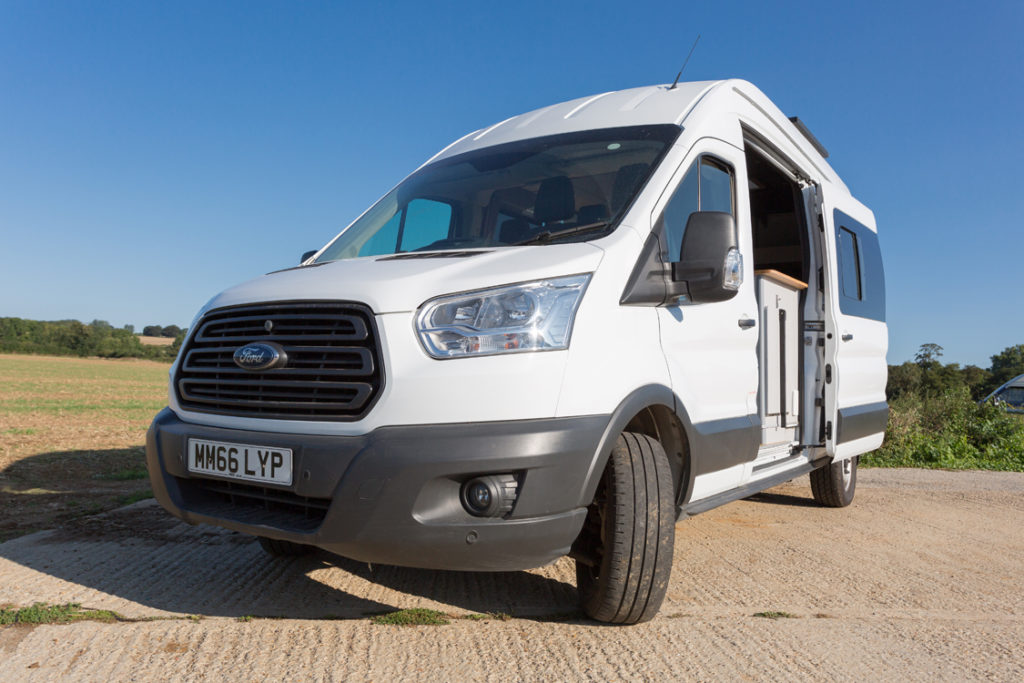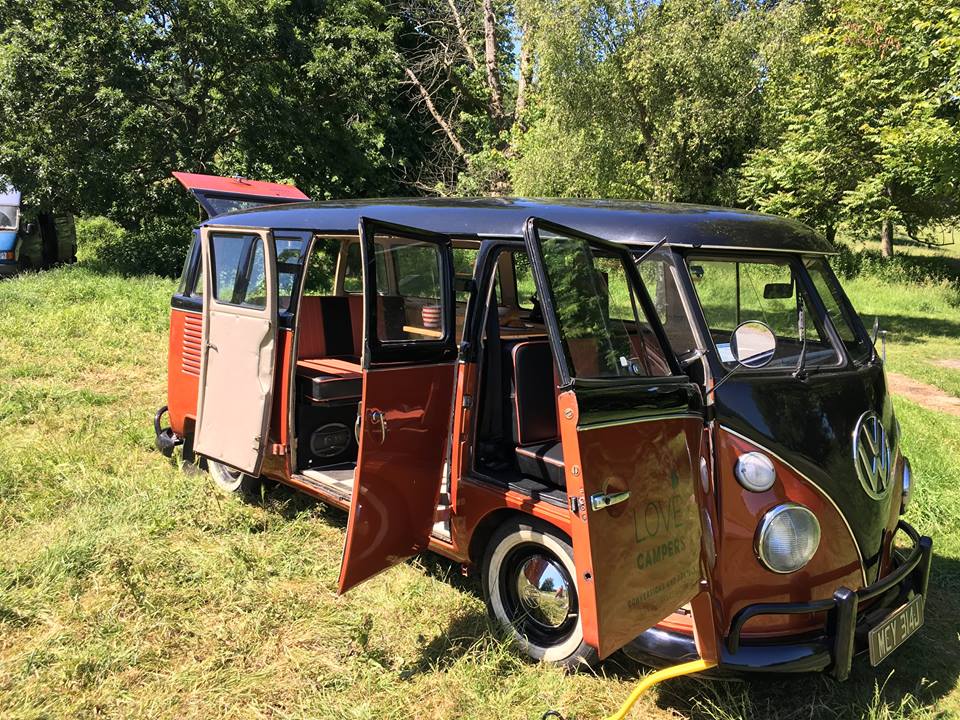Buying a secondhand campervan in the UK can be a fraught business and lots of people get in touch with us for advice at different stages of their campervan buying journey. We are always happy to share our expertise, whether you end up buying a campervan from us or not.
Yes, we sell campervans, but they are new conversions. This blog is here to help answer your common questions about buying a secondhand campervan.
As Britain seems to be going campervan crazy at the moment, I thought I would compile some key FAQs to help you navigate the second-hand campervan market. Campervans are never cheap and it’s worth doing your homework on what you are buying and who you are buying from.

The state of the base van
It’s very easy to be blown away by a pretty looking van that may have had a paint touch-up. The state of the base van is the single most important factor in terms of assessing the longevity and true value of the campervan you are buying.
The cost of the campervan should accurately reflect the state of the base van – pay less and expect to have a higher mileage, older, less pristine base van. The key here is to be sure you know what you are buying, and make sure that the campervan is priced accordingly.
There are lots of ways to check the state of a base van and the accuracy of what you are being told about it. Here are some tips:
- Check the van’s MOT history online. This is a quick and easy way to see some of the maintenance history of a van. There’s nothing necessarily sinister about a few fails in the van’s history, especially if due to minor issues. What you want to see are a good clean recent MOT and that there are no ongoing advisories over the years that have been neglected until they became a major issue. It’s also helpful to check mileage history here to help be sure that the current mileage is true.
- Check the vehicle’s service history. Not all vans will have a full service history, for example Japanese imports and some fleet vehicles. But have a look at what is provided and work out if there is a good reason for the absence of a full service history.
- Check for corrosion. This is a biggie as once a vehicle is too corroded it’s often not really possible to deal with fully. Sometimes vans have a quick paint job to cover up corrosion and rust. If this is something that if you are not confident in checking yourself, find someone who can help.
- Check the age of the tyres, especially on imported vans.
- Research the common faults with the kind of van you are looking at and then specifically research, ask about them and check the service history. For example if you are buying an older van prone to electrical problems, be sure to check and double check the van you are buying, look at it’s history to see if this has been dealt with in the past, and research how much it would cost you to put it right if it goes wrong in the future.
- Pay the AA or another independent vehicle checker to give your prospective campervan the once-over.

Checklist for your secondhand campervan
Now to the campervan! There is so much to go into here so we are only going to cover the key areas that will make the difference. We are particularly focusing on areas of a build that could go wrong if installed incorrectly.
- Insulation – Check the van has been vapour barriered and insulated. There’s lots more to say here but check this as a minimum and speak to people who know what they are doing to learn more. Any wooden cladding inside the van has to be treated on the inside as well as the outside to avoid rot and mould.
- Wiring – Yes, wiring. Does the fitter know what they are doing? Where and how have the wires been laid? Can you easily access the leisure battery and any other controls? The potentially really dangerous element of campervan electrics is the 240v hook-up, so do make sure it’s not been installed by a joker.
- Gas – Campervan gas fittings do not need to be signed off by a Gas Safe Register electrician unless they are going to be for hire. They do however need to be carried out to the same standard, by someone who is “reasonably competent”. Check if the campervan has got gas fittings that comply with the regs and don’t buy the van if they don’t. If you don’t feel competent to check if the fittings comply, or that the fitters know what they are doing, then only buy a van that does have a gas safety certificate.
- Rear seats, beds and other heavy pieces of furniture – the key thing to remember here is that any large items in the back of the van are potential missiles if the car is in an impact. Anything heavy that someone is sitting in during travel, as well as being built properly, has to be really well attached to the chassis of the van. Other items may not need to be attached to the chassis but they do need to be well attached to the van and if they can’t, they shouldn’t be in there. Your van may look like a cosy living room but it’s not, it’s a moving vehicle, so things generally need to be attached more securely than they do in your home. Rear seatbelts equally must be properly attached to the van otherwise they are worse than useless. This is a technical area that you probably can’t read up on overnight. So research and talk to professional fitters to find out more.
- The weight of the van – especially if your van has been converted by an amateur, do check that the conversion hasn’t taken it over the specified payload limit for the base van. This can be done at a weighbridge if you have any concerns. In general, the more heavy items and chunky wood in the back of the van, the heavier it will be. The Revenue Weight is on your log book.
- Damp and water ingress – if you are buying an older van, check the campervan with a damp meter to avoid any nasty surprises. Look under the sink and at any water pipes to check for leaks. Check what happens when the tap is running. Look for damp stains under any mattresses and cushions. Check lining to make sure it’s dry. If it’s not raining, ask if you can see the van being hosed down to check there aren’t any leaks.
I’ve covered some core areas here but there’s obviously a lot more than this to consider. However, as general guide, if the van does not inspire confidence in these key areas then it’s safe to say it won’t be a good buy for you. Don’t feel awkward about making sure all these boxes are ticked. If a seller can’t or won’t answer your detailed questions then you need to ask yourself why.
Check out our most recent blogs here:
- 9 must-attend vanlife festivals in 2025
- Custom Campervan Conversions: The Perfect Mobile Home Office?
- Using a campervan for daytrips in lockdown
- Campervanning with a Toddler
- Over Night Campervan Stays With A Toddler in Our Mercedes Sprinter
Follow us on our Facebook and Instagram accounts for our latest news and posts!
